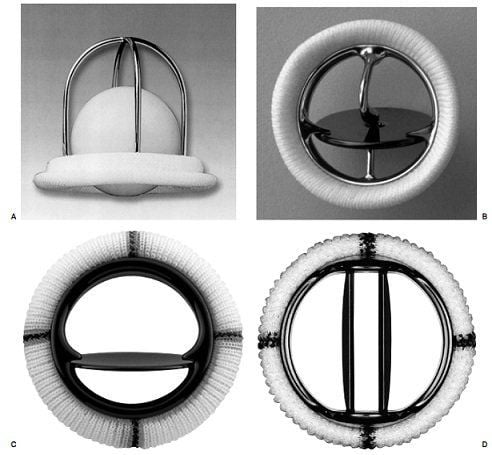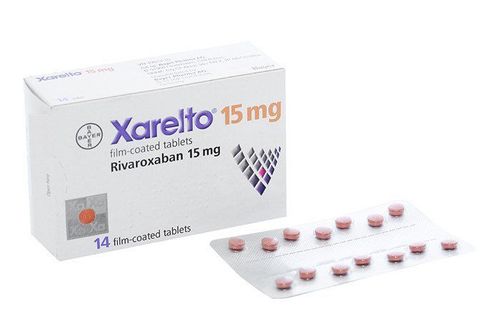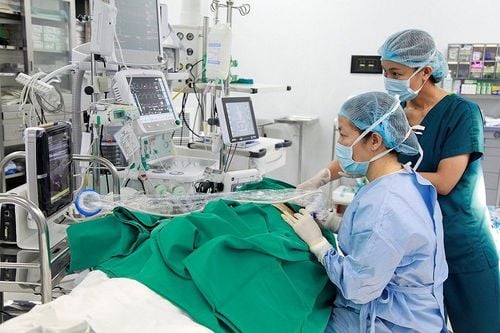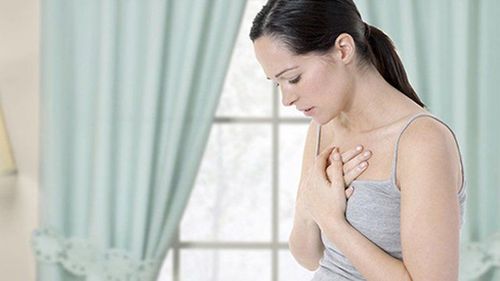This is an automatically translated article.
Replacing autologous heart valves and artificial heart valves is a technique for the treatment of valvular heart disease that does not respond to medical methods. Artificial heart valves include biological heart valves and mechanical heart valves. Each type has different advantages and disadvantages.1. Types of heart valves
There are many types of heart valves used for valve replacement surgery, including:
Mechanical prosthetic heart valves: Mechanical artificial heart valves are made from metal, the outside is coated with carbon or titanium coated with pyrolytic carbon to limit the shape. into a blood clot. Biological Heart Valves: Biological heart valves are manufactured from natural materials, which are the pericardium or heart valves of processed cows and pigs. Autologous heart valve: Autologous valve replacement is a method of using the pericardium or the patient's own heart valve to rebuild the valve that needs to be repaired. Autologous heart valves have an almost life-long lifespan. Allogeneic heart valves: Allogeneic heart valves are the heart valves of an organ donor, handled and preserved according to the procedure. This is a special type of biological heart valve because there is no artificial material. The advantages of allograft heart valves are high antibacterial, generally better life expectancy than biological heart valves, but less mechanical heart valves and no need for anticoagulation. However, the limitations of this method are that the valve size is not diverse, depends on the donor, the number is small, and the implantation technique is more complicated than autologous and artificial heart valve replacement.
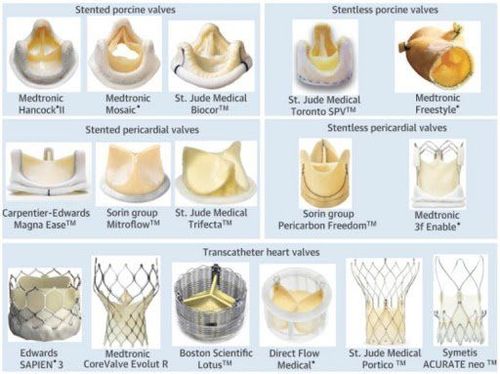
Có nhiều loại van tim dùng cho phẫu thuật, như van tim nhân tạo cơ học, van tim sinh học...
2. Features of mechanical prosthetic heart valve
2.1. Advantages of mechanical prosthetic heart valves Thanks to being made from heat-resistant carbon or titanium artificial materials, the biggest advantage of mechanical artificial heart valves is durability. In theory, mechanical heart valves could last a lifetime without compromising structure and function. In fact, compared to other types of heart valves, mechanical prosthetic heart valves are about 20 to 30 years old or more. Because they are made of durable materials, mechanical valves are not degraded over time, the cost is cheaper, only half the price of biological heart valves. 2.2. Disadvantages of a mechanical prosthetic heart valve The biggest advantage of a mechanical prosthetic heart valve is its durability, but the biggest disadvantage is that it requires the patient to use anticoagulants for life to prevent the risk of blood formation. block on the valve, avoid the occurrence of valve jamming or myocardial infarction. Anticoagulant use is often associated with an increased risk of bleeding, such as subcutaneous hemorrhage (bruises), gastrointestinal bleeding (stomach bleeding), urinary tract bleeding (hematuria) and The most serious is cerebral hemorrhage which can lead to disability or death for the patient. In addition, anticoagulants also have a risk of causing birth defects in the first 3 months of pregnancy. In contrast, inadequate anticoagulation leads to an increased risk of blood clot formation on the mechanical valve, valve blockage and possibly death if not promptly treated. Blood clots can also slough off and block arteries, causing infarcts of organs, the most dangerous of which are cerebral infarction and myocardial infarction. In patients who have undergone mechanical valve replacement, anticoagulation also complicates cases requiring noncardiac surgery or when disease onset is contraindicated for anticoagulation. For example, gastrointestinal bleeding, cerebral hemorrhage,... 2.3. Indications for mechanical prosthetic heart valves are considered for use in the following cases:
Patients <60 years old and with no contraindications to anticoagulation. There is a risk of blood clot formation in the past such as: Atrial fibrillation, enlarged left atrium (over 55mm), blood clot in the atrium, history of thrombosis, ... and have indications for lifelong anticoagulation. At this point, the addition of a mechanical prosthetic heart valve is only one factor that increases the risk of thrombosis. Young women who want to become pregnant need to be very careful in choosing the right valve. Mechanical valve replacement will avoid valve degeneration, but in the first 3 months and after 36 weeks, it is necessary to stop taking anticoagulants, replace with other anticoagulants, and must be closely monitored. Therefore, mechanical valves are not suitable for people without good medical care who cannot be monitored regularly.
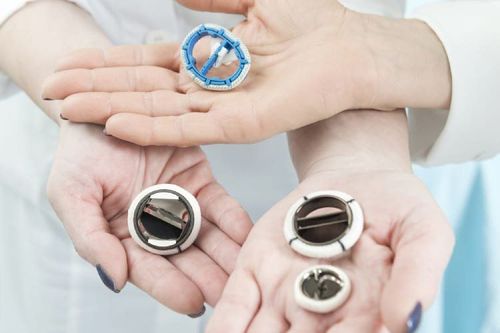
Van tim nhân tạo cơ học không bị thoái hóa theo thời gian, giá thành rẻ
3. Characteristics of biological heart valves
3.1. Advantages of biological heart valves Biological heart valves are made from processed natural materials. Therefore, the biggest advantage of biovalves is that there is no need for lifelong anticoagulation. Patients usually only need anticoagulation for about 3 months after surgery. This is the time required for endothelialization of the prosthetic materials and no longer a risk of thrombosis.
3.2. Disadvantages of biological heart valves Due to the nature of heterogeneous natural valve tissue, the biggest disadvantage of biological heart valves is that it will gradually degenerate over time, affecting the valve's operation and causing restenosis or re-stenosis. artificial valve opening. Therefore, the life span of a biological heart valve is only 8 to 15 years, after which patients often need to have surgery again to replace a new heart valve.
The degree of biological heart valve degeneration depends on the age of the patient and the pressure exerted on the valve. The younger the age, the faster the valve degenerates. In children, 50% of biological valves will fail after 4 years and after 6 years 80%. For people over 60 years old, 5% of biological valves will degenerate after 5 years, 20% after 8 years, and after 10 years 30%.
3.3. Indications Biological heart valves are indicated for the following patient groups:
People over 60 years old often prefer to appoint biological heart valves over mechanical artificial heart valves because at this age the rate of valve degeneration is slow. than young people. Women planning to give birth in the near future, but need to clearly explain to the patient that biological heart valve degeneration occurs more rapidly in young people and during pregnancy. Patients who are not able to monitor and provide good medical care, especially in the use of anticoagulants, such as ethnic minorities; people in remote areas and islands; people with intellectual disabilities,... Patients with contraindications to anticoagulants or with diseases that cause bleeding such as cerebral hemorrhage, stomach bleeding,... Patients with infectious endocarditis can We recommend the use of allogeneic heart valves because they help reduce the risk of infection after surgery. In summary, biological and mechanical heart valves are often indicated for the treatment of valvular heart disease that is unresponsive to medical therapy. Each type of heart valve has different advantages and disadvantages. Therefore, depending on the purpose, circumstances and condition, each person will be assigned an appropriate heart valve replacement.
Currently, Cardiovascular Center - Vinmec International General Hospital is one of the leading centers in the country for examination, diagnosis, screening and treatment of cardiovascular diseases. Vinmec not only has the convergence of a team of experienced and reputable leading experts in the field of surgical treatment, internal medicine, interventional cardiac catheterization, but also has a system of modern equipment, on par with The most prestigious hospitals in the world such as: MRI 3 Tesla (Siemens), CT 640 (Toshiba), high-end endoscopy equipment EVIS EXERA III (Olympus Japan), high anesthesia system Avace level, Hybrid operating room according to international standards... Especially, with the space designed according to 5-star hotel standards, Vinmec ensures to bring patients the most comfort, friendliness and peace of mind. .
Please dial HOTLINE for more information or register for an appointment HERE. Download MyVinmec app to make appointments faster and to manage your bookings easily.






